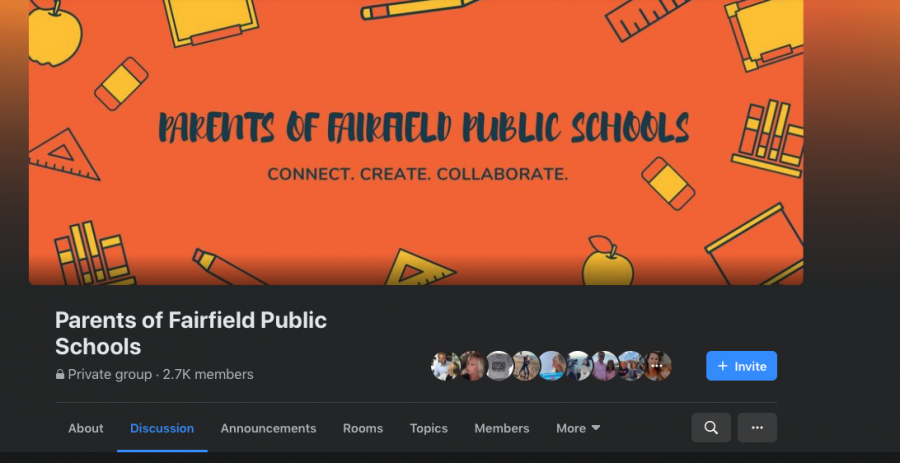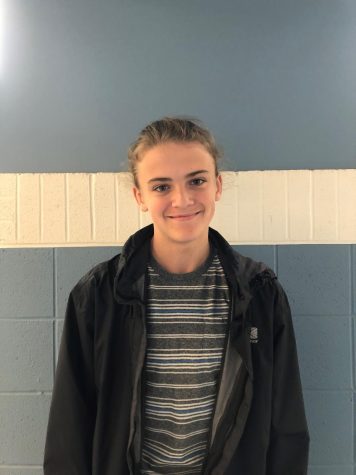The “Teachers Not Technology” Facebook Group: What it means for Discourse in Fairfield
The Deep Divides That Still Remain In Fairfield
January 28, 2021
Though many may proclaim that our nation is on the mend, local divisions remain deeper than ever, and a vulnerable Fairfield Public School system sits at the center of the debate.
Katie Flynn started the “Parents Of Fairfield Public Schools” Facebook group in summer 2019, looking to create a space where parents could connect and talk about the goings about town: “I wanted to create a place that wasn’t necessarily non-partisan or totally unopinionated, but a place where parents could discuss the goings-on in the districts like budget proposals and changes et cetera.” Little did she know, her group would soon become the epicenter for an intense and sometimes vicious debate that continues to rage in Fairfield.
According to her and other members of the group, the transition to online school was fairly innocent at first: parents used the group to organize positive chalk walks, teacher appreciation days, and several other capacities concerned with climate. As late August approached though, more parents began to speak out about their opinions of the reopening plans put forward by the administration.
At first, they seemed to be civil, but circumstances quickly turned sour: “I had to put a pause on one conversation so it wouldn’t be flagged by Facebook automatically and had to delete a few posts. It’s hard to be a moderator and not be a censor, but we had to draw a line somewhere” Flynn even said that she contemplated deleting the page altogether, and had to put new restrictions on how people could share articles into the group. She eventually had to draw the line when articles were being shared that raised questions about the presidential election and its validity.
After a while, Katie remembered telling the very vocal few to simply start a new group if they were so passionate and didn’t want any restrictions. Just like that, the “Teachers Not Technology” Facebook Group was born.
Though a few teachers who were interviewed for this article have attempted to join the group, all of their requests have been denied. The moderator of the group refused to comment on anything regarding the group simply acknowledging the page exists, but saying “we are not a group nor would I want to speak for anyone.” My request to join the group was also denied, though I messaged the group admins letting them know I would be writing an article about them.
This story is symptomatic of something larger that has started occurring around Fairfield: at the BOE meetings, in the local papers, and in local politics: town discourse has been reduced to shouting matches online, with teachers and students at the center of it all.
BOE meetings and arguments from both sides have essentially been reduced to the same divisive talking points, including some people on the full reopening side of the debate accusing teachers of being lazy, or not willing to come back full time because it would mean more work for them.
One anonymous teacher pointed out the irony of these attacks, saying that many teachers are parents in the FPS district who want their kids going back full time too, but know it isn’t realistic at this moment: “Parents should embrace the town’s teachers as an opportunity for partnership, but some rhetoric used when talking about teachers is inflammatory and doesn’t recognize the hard work put forth. They don’t recognize bargaining rights and safety rights of teachers, which allows them to best serve students.” The teachers, parents, and students I talked to all told me the same thing: everybody wants to go back full time, and school just isn’t the same in the hybrid model.
The only difference between the two sides is when exactly they want schools to reopen, though the owner of the “Teachers Not Technology” group told me in her statement that the goal of the group is to “reopen schools responsibly,” so it seems the two sides may agree more than they realize.
It’s hard to tell a story like this without considering the national landscape as well: some of the articles shared by especially vocal members seem to reflect the rhetoric of certain political candidates and sides, even though they claim to be nonpartisan.
Though the divisions run deep and it doesn’t seem like they’ll simply disappear any time soon, we all have to recognize that maybe we agree a bit more than we realize, and remembering the reason for this debate in the first place is critical. In the words of Flynn, “We can’t advocate and have discussions in our echo chambers, and it’s important to have a place to discuss our ideas. I have seen more resilience, maturity, and optimism from our kids during these times than from anybody else, and it seems we could all learn a little bit from them. We all have the same goal in mind, and can verbalize without being so derogatory.”


